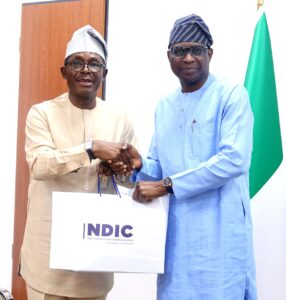The Executive Board of the International Monetary Fund (IMF) has concluded the Article IV consultation with Nigeria and commended the authorities for restarting the cash transfer program, emphasising the urgency of scaling it up to mitigate acute food insecurity. They welcomed the authorities’ work on a comprehensive revenue mobilization strategy including boosting tax enforcement and broadening the tax base in a statement issued afterwards and underscored that mobilizing revenue and reprioritizing expenditure, including phasing out costly and regressive energy subsidies, are critical to creating fiscal space for development spending and strengthening social protection, while maintaining debt sustainability.
Nigeria, under the administration of president Bola Tinubu, has set out on an ambitious reform path to restore macroeconomic stability and support inclusive growth. The government reformed the fuel price subsidies, unified official foreign exchange windows, and are focused on revenue mobilization, governance, and enhancing the monetary and exchange rate policy frameworks, as well as strengthening social safety nets.
The fund observed that over the last decade, limited reforms, security challenges, weak growth and now high inflation have worsened poverty and food insecurity. While Nigeria swiftly exited the Covid-19 recession, per-capita income has stagnated. Real GDP growth slowed to 2.9 percent in 2023, with weak agriculture and trade, and despite the improvement in oil production and financial services. Growth is projected at 3.3 percent for 2024 as both oil and agriculture outputs are expected to improve with better security. The financial sector has remained stable, despite heightened risks. Determined and well-sequenced implementation of the authorities’ policy intentions would pave the way for faster, more inclusive, resilient growth.
Inflation reached 32 percent year-on-year in February 2024, driven mainly by food price inflation (38 percent) and loose financial conditions. IMF posits that with continued monetary tightening, inflation is projected to gradually decline to 24 percent year-on-year at end-2024.
Revenues benefited from Naira depreciation and enhanced revenue administration, according to the IMF while expenditure rationalization and restraint allowed for a one-off wage increase to mitigate the impact of high inflation for public officials. The social cash transfer system has been strengthened and initial payments have been made.
Good production costs money and you can support what we do. Please find our details below👇🏾👇🏾👇🏾 Account name: MARKET ONLINE MEDIA Bank: UBA Acc No: 1026401930.






























